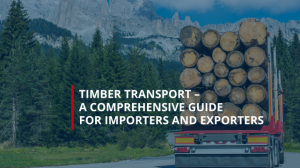

28/03/2025
Certificate of Origin – what is it and when is it required?
Certificate of Origin – what is it and when is it required?
What is a Certificate of Origin? A Certificate of Origin (COO) is a document that certifies the country of origin of the exported goods. It is required by many countries during customs clearance and can influence the amount of customs duties as well as the ability to introduce goods into a specific market.
This document plays an important role in international trade because:
– It is essential for applying preferential tariffs under trade agreements,
– It may be required by importers or banks for transactions financed by letters of credit,
– It is necessary for certain industries subject to regulations (e.g. steel, textiles, agriculture),
– It may be required due to a country’s trade policy (e.g. in the context of anti-dumping duties or embargos).
Types of Certificates of Origin There are two main types of certificates of origin:
Preferential Certificate of Origin – allows for reduced customs duties or exemption from duties if the country has a relevant trade agreement (e.g., EU agreements with third countries, CEFTA, EFTA).
Non-preferential Certificate of Origin – confirms the country of origin but does not grant any customs relief. It is required mainly for regulatory and administrative purposes. Examples of preferential certificates:
EUR.1 – used under EU free trade agreements with countries like Norway, Switzerland, Ukraine, Turkey, the United Kingdom.
Form A – used in countries under the Generalized System of Preferences (GSP).
ATR Certificate – for trade between the EU and Turkey under the Customs Union.
When is a Certificate of Origin required?
A Certificate of Origin is required in various situations depending on the country of import and the type of goods. The most common cases are:
– Import into countries that require a certificate of origin under national regulations – e.g., Algeria, Egypt, Saudi Arabia, Brazil.
– Import of products subject to specific regulations – e.g., steel, textiles, chemical products, agricultural and food goods.
– Transactions secured by a letter of credit – importers may require a Certificate of Origin as a condition for the disbursement of funds.
– Goods benefiting from preferential customs treatment – required for reduced tariffs under free trade agreements.
– Additional importer requirements – some companies and retail chains may require a Certificate of Origin to confirm the originality of the product. It is important to check the requirements of the destination country before exporting, e.g., in the customs tariff of the respective country or by contacting the importer.
How to obtain a Certificate of Origin?
In Poland, the body responsible for issuing certificates of origin is the Polish Chamber of Commerce (KIG) and regional chambers of commerce. For preferential certificates (e.g., EUR.1), the issuing body is the Customs Office.
Process for obtaining a Certificate of Origin:
Company registration – the exporter must present registration documents and authorization for individuals submitting the application.
Preparing the application – providing information about the goods, tariff code, country of origin, and attaching the required documents (e.g., commercial invoice, product specification).
Submitting documentation – to the Chamber of Commerce (for non-preferential certificates) or Customs Office (for preferential certificates).
Issuance of the certificate – the document is usually issued within 1–2 business days, but expedited processing can be requested in justified cases. For retrospective export (when the certificate is issued after the goods have been shipped), it is necessary to include the IE599 message confirming the export.
Documents confirming the origin of goods:
To obtain a Certificate of Origin, the exporter must prove that the goods genuinely come from the declared country. This can be done by providing:
A commercial invoice with a declaration of origin,
A supplier’s declaration (for components used in production),
A quality certificate or material certificate,
Product cards and production documentation.
Most common mistakes when submitting an application:
Incomplete documentation – e.g., missing commercial invoice or supplier’s declaration.
Incorrect tariff code – this may result in the rejection of the application or the need for corrections.
Incorrectly identifying the country of origin – e.g., for goods processed in more than one country.
Lack of entitlement to obtain a preferential certificate – if the product does not meet the origin rules specified in the trade agreement.
Legal updates regarding Certificates of Origin (2025) In 2025, key agreements and regulations affecting the issuance of Certificates of Origin are still in force. After the UK left the EU, new rules for the origin of goods apply under the Trade and Cooperation Agreement (TCA). To benefit from zero tariffs, exporters must document the origin of the goods, and for shipments over €6,000, they must register in the REX system.
The REX system is gradually replacing EUR.1 certificates in trade with countries covered by EU preferences, such as Canada and Japan. Exporters can self-declare the origin of goods, simplifying customs procedures.
Due to sanctions against Russia and Belarus, import and export bans for certain goods have been implemented, along with the requirement to verify their origin. Companies must adjust their procedures to ensure compliance with regulations and avoid legal consequences.
Summary
The Certificate of Origin is a crucial document in international trade. It may be required by importers, customs authorities, or banks financing transactions. In Poland, these documents are issued by chambers of commerce and customs offices, and obtaining them requires presenting appropriate evidence of the origin of the goods.
We are a Polish company, and we assist in ensuring your compliance with all required documentation for international trade, including Certificates of Origin.
ARE YOU LOOKING FOR A CARRIER TO DELIVER YOUR CARGO SAFELY?
Contact our expert who will answer all your questions:
THESE TOPICS MAY BE OF INTEREST TO YOU:


Household goods for relocation – what you should know before customs clearance

Road transit from China through Poland to Europe – handling LCL shipments under T1 procedure

International trade – which transport method to choose for your company?

Timber transport – a comprehensive guide for importers and exporters

